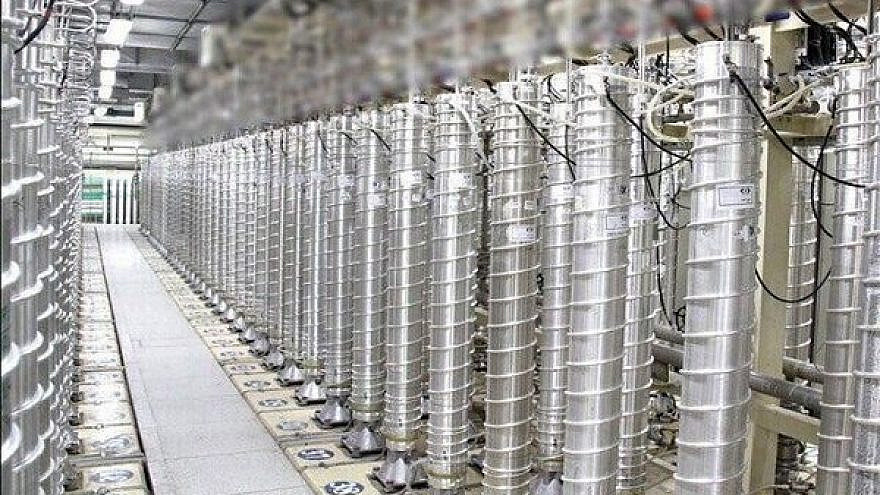Iran could develop a nuclear bomb within two years and Hezbollah will not seek an all-out war, according to the IDF Military Intelligence Directorate’s annual threat-assessment report, which was made public on Tuesday.
The report, which focuses on the security challenges Israel can expect to face over the next 12 months, estimates that the Islamic Republic can enrich enough uranium to make one bomb within four months. Iran currently has 1,300 kilograms of uranium enriched to 4 percent and 17 kilograms enriched to 20 percent, according to the IDF. In order to manufacture a single nuclear device, Iran will need 40 kilograms of uranium enriched to 90 percent.
The Iranians have not pressed on with their nuclear project since the assassination of key nuclear scientist Mohsen Fakhrizadeh, which was attributed to Israel, as they have not found a replacement for him yet, according to the assessment. However, it notes that Tehran is breaching the 2015 Joint Comprehensive Plan of Action nuclear agreement.
In addition, the IDF estimates that Iran-backed Hezbollah and other terrorist groups will likely initiate more “limited offensives” against Israel over the coming year, which would force Israel to either minimize or stop its activities in Syria. However, such offensives would have to be carried out without harm to Israeli civilians, which would likely lead to Israel escalating the conflict.
Currently, the IDF believes Hezbollah possesses an arsenal of several dozen precision-guided missiles, rather than the hundreds that have been reported by some. For now, the IDF believes it still has an edge over Hezbollah on this front.
Meanwhile, despite an initial interruption caused by the coronavirus pandemic, Israel’s enemies, most of which are suffering from severe economic, social and public health crises, have barely diverted any of their efforts from rearmament and force build-up. This applies to Iran and its proxies in Syria, Iraq and Yemen, to Hamas and Palestinian Islamic Jihad (PIJ) in Gaza and to Hezbollah in Lebanon.
In general, the IDF believes that its campaign against Iranian entrenchment in Syria—or the so-called “war between wars”—has successfully countered Iran’s goal of establishing a significant military presence in Syria, but has not prevented the regime in Tehran from pressing on with those efforts anyway.
The IDF believes that due to its successes against Iran in Syria, the Islamic Republic has pivoted toward enhancing its already robust military presence in Iraq and Yemen, from which its proxies can launch attacks on Israel using long-range missiles or armed drones. These more advanced and more powerful weapons are easier to smuggle into Iraq and Yemen than Syria or Lebanon, but the greater range also gives Israel more time to defend itself.
In the case of a drone attack from Yemen, for instance, the assessment estimates the IDF would have roughly six hours to see the attack coming and counter it.
The report also said that Syrian President Bashar Assad will look to improve relations with his neighbors and attempt to return to the Arab League, as well as rebuild his army, in particular the air-defense divisions. Large swaths of Syria, mainly in the north, will continue to remain under Kurdish or Turkish control, according to the assessment, and Assad is still reluctant to act against Iran’s continued entrenchment in his country and unlikely to change his mind in the coming future.
On the Palestinian front, although Hamas is seeking a long-term ceasefire arrangement with Israel, the current quiet on the Gaza border is very fragile.
The IDF also doubts the upcoming parliamentary and presidential elections the Palestinian Authority plans to hold in May and July respectively will be successful.
Hamas and PIJ, according to the assessment, will continue solidifying their power in Gaza, with an emphasis on their rocket arsenals, while trying to silence those calling for attacking Israel.
Regarding the new administration in Washington, the report estimates that it will be far more involved globally than its predecessor, which could provide some advantages for Israel.
This article first appeared in Israel Hayom.


























